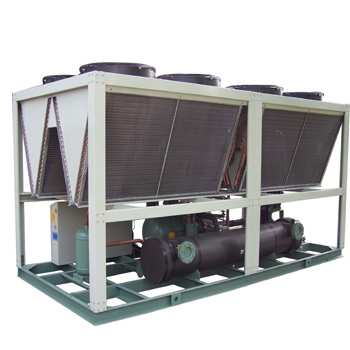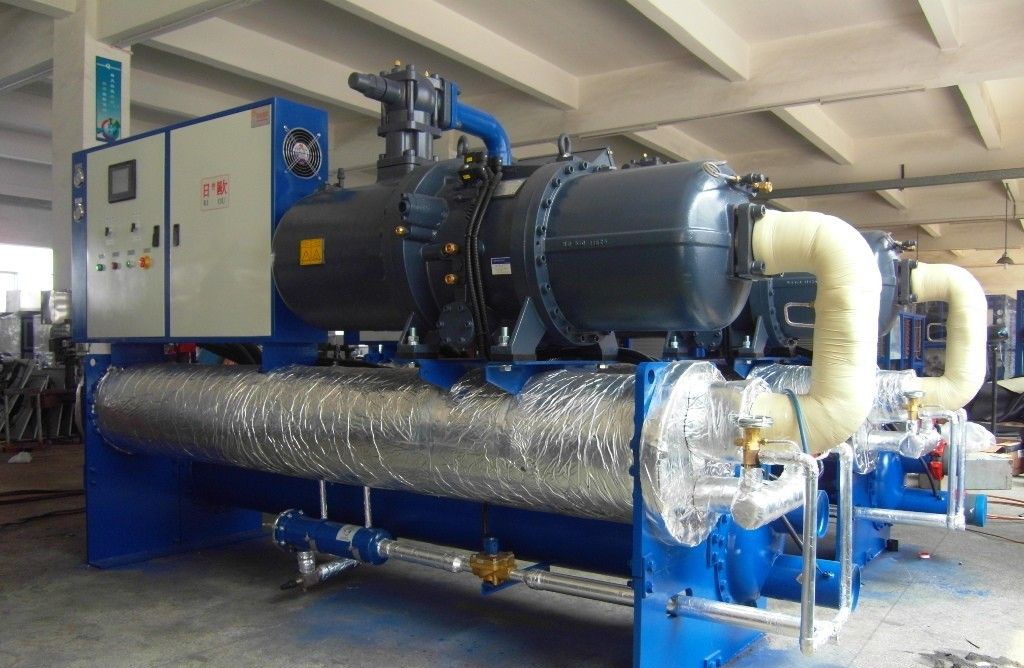In large industrial sized offices and buildings, chillers are the components that keep the building cool, while working in conjunction with an HVAC system. Chillers have are two different methods to keep from overheating. We will discuss the differences between chillers with water cooling vs. air cooling chillers.
Water Cooling vs. Air Cooling Chillers
Operation and Installations
Chillers using water cooling are common for indoor installation and operation, and a separate condenser water loop cools them. To expel heat to the atmosphere they connect to outdoor cooling towers. Air cooling chillers commonly use copper tubes for refrigerant flow, and aluminum fins for the air flow.
Additionally, air cooling systems directly utilize ambient air with mechanical circulation. The mechanical circulation is directly through the machine’s condenser coil to expel heat to the atmosphere.
Cost and Effectiveness
The initial cost of chillers with air cooling is generally lower than water cooling chillers. This is because air systems do not require cooling towers, condenser water pumps and associated HVAC components. Small systems almost always use air cooling. This is because the extra requirements of water treatment and maintenance are capital intensive and will not be diminish quickly by the lower operating costs.
Water cooling chillers may be a better choice for some applications because of better heat transfer properties of water as compared to air cooled chillers. The primary advantage of water is that the film coefficient is 10-100 times better with water than air. Film coefficient controls heat transfer with given constant area and temperature difference.

Size of Chiller Systems
Also, in comparison to size, air cooling chillers are usually less expensive than water cooling chillers. Even experts in the HVAC field of work have no exact answer when it comes to “are water cooled chillers better than air cooled chillers?”.
Another issue to consider when deciding is if you’re in an area where water and cost of water is not an issue. If space is a problem, air cooling chiller systems can take great utilization in open spaces. Open spaces may include parking lots and roof or ground areas. Conversely, water cooling chillers take up much more space and need a closed circuit along with a water tower to hold the cooled water.
These are just a few of the big differences between water cooling vs. air cooling chiller systems. The fact is that it all depends, water cooled chillers will normally condense at an average lower pressure than air-cooled chillers. This is because the water temperature will usually be less than the air temperature. If your condenser is operating at lower pressure then it can directly reflect and translate into lower operating costs.


Good One 😉
Thank You